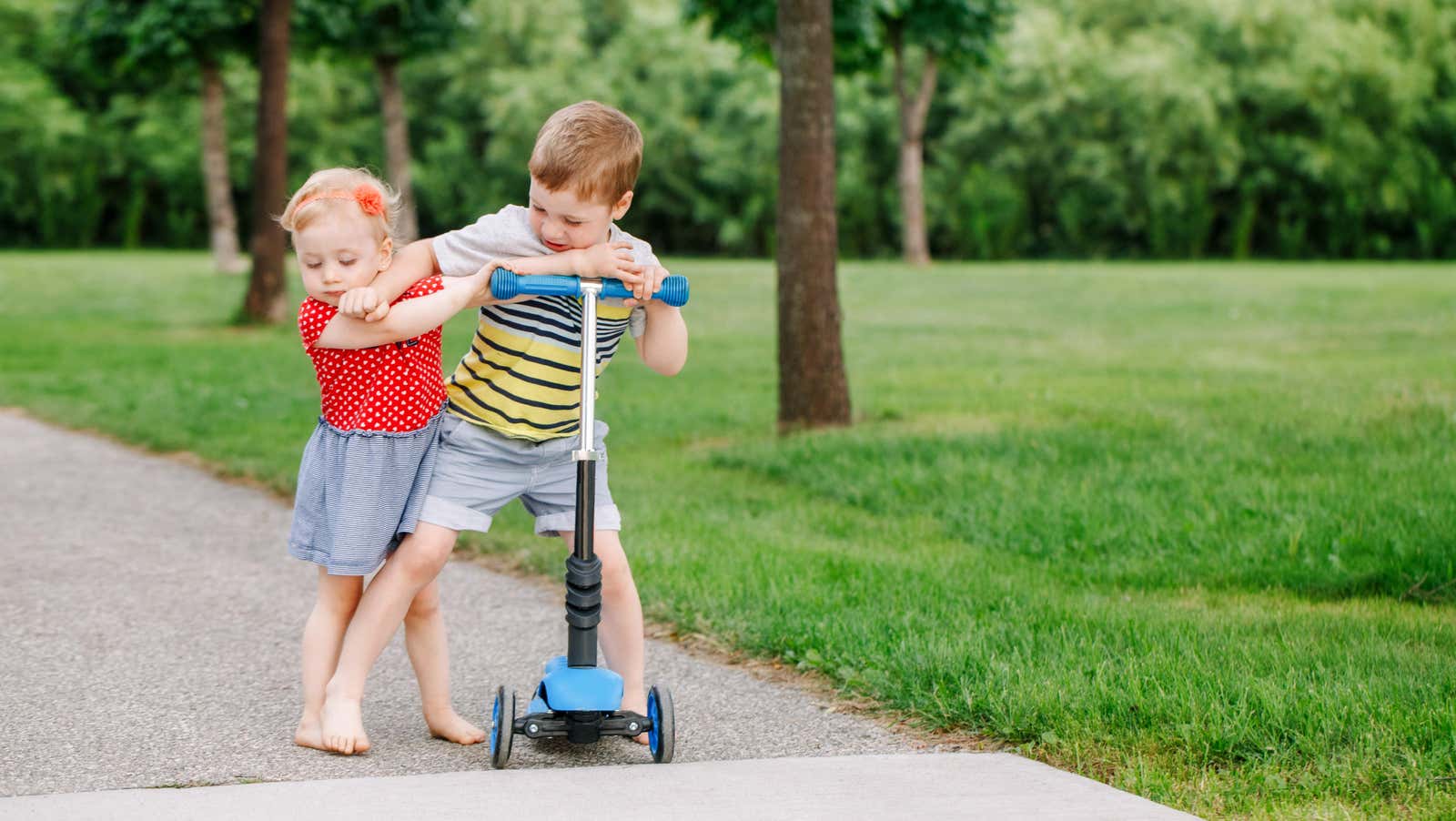Children Don’t Always Need to Share

My 2-year-old son started crying a few minutes after my oldest son opened his birthday presents. He wanted to play with his brother’s newest toys as soon as they came out of the drawers, but his brother flatly refused his requests. And while I was disappointed that my oldest child didn’t want to share, I couldn’t blame him either. There is nothing more annoying for a child than being forced to give their toys to someone within minutes of receiving them.
However, not sharing with a friend or family member goes against everything I learned as a child. If someone I knew wanted to use something that I was using, I understood that I had to give them the opportunity without question. When I saw this scenario play out between my children, I asked myself, “Should children always share?”
I posed this question to parenting psychologist , bestselling author and mother of four, Dr. Heather Wittenberg. She explained that instead of forcing children to share with each other, parents should teach them about behavior over time. But she admits that for many parents this is easier said than done.
“It’s actually more difficult than potty training because it takes a lifetime,” she says. “Sharing information is one of the most difficult forms of human behavior, and many people never get over it.”
Raising young people who think about the well-being of others is one of the reasons Wittenberg believes in teaching children to share. She gave some tips on how parents can make this practice a reality.
Why Teaching Children to Share is Important
Sharing falls under the basic social-emotional skills that children must learn to manage their emotions, have compassion for others, and make and maintain friends. And while sharing helps children develop empathetic behavior, Wittenberg says, sometimes it runs counter to the child’s need to protect their borders. This is a skill that parents have neglected for centuries because it can teach young children, especially girls, that pleasing others is important.
“You can’t really ‘make’ someone ‘be good’, care, or empathize,” she explains. “You can force them to abandon their boundaries and insist that they share them, even if it seems wrong to them. But that’s the wrong lesson, isn’t it? “
As children are still developing and learning to behave in society, forcing them to exhibit advanced skills such as sharing, they find themselves in a losing situation. This will most likely lead to tantrums and tears, and if they tell them to share, it will only make the situation worse.
“Rather train and encourage them side by side when they can share the situation on the playground or at a birthday party,” says Wittenberg.
How can parents “teach” how to share?
Wittenberg emphasizes that when teaching children to share, parents need to be aware that this is not a skill learned over the weekend like potty training. Parents will need to be patient, supportive, repetitive – and willing to demonstrate this for themselves if they want their children to know how important it is for them to learn this empathetic behavior.
“This is an incredibly complex social-emotional behavior that requires multiple developmental stages, a lot of trial and error, a lot of rewards and good modeling from the parents,” she says.
And in my situation, when I teach my two sons how to share, Wittenberg says it might be more tedious to teach brothers and sisters because they keep their best and worst behavior for each other. In addition, it is easier for parents to lose patience in such situations because we want our children to get along with each other.
She emphasizes that parents need to be honest with their children and realize how difficult it is for them to share with each other. But at the same time, let them know how important it is for them to learn how to do it. Also set an example and model the behavior you want to see in front of your children. Parents can also organize a practice exchange session that you can monitor and train.
“When you see this, encourage ‘share in the wild,’” she adds. “It doesn’t have to be something serious – just a quiet but sincere confession:“ Hey, I saw you share your turn with your brother. I know it must have been difficult. But you will become a big child, and I can see that you are taking care of your brother. Good job.'”